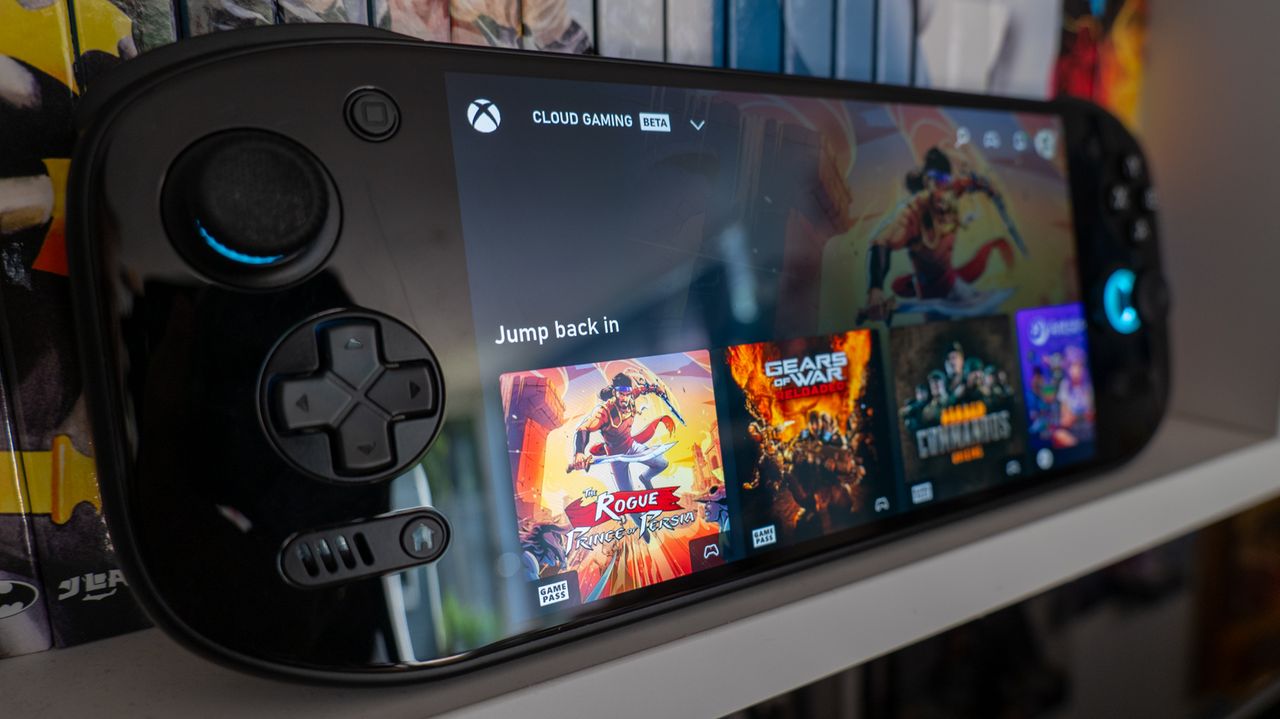
(Image credit: Rik Henderson / Future)
There are those that have predicted the death of conventional video games consoles ever since cloud gaming first arrived on the scene in the early 2000s, but that's never proved to be the case.
Services like OnLive, Gakai and, more recently, Stadia launched with huge ambition, but gradually fell by the wayside due to poor bitrates, lack of game support or iffy business plans. And while the former duo were eventually acquired by Sony, it has limited the technology it bought to PS Plus Premium members only.
Then there's another enemy of cloud gaming that's proved even more damning over the years – latency. No matter how hard the services have tried, the lag between a control command and related action appearing on screen has been too tangible for many. Well, until now, that is.
The latest update to Nvidia's GeForce Now provides an experience that's as close to playing on a local PC rig as we've ever seen. By utilising RTX 5080 tech at server level (on its highest tier and with select games), plus DLSS 4 frame generation, it has nigh-on eliminated latency issues.
Unless you're a pro gamer, you would be hard pushed to know whether a game is streamed or played locally. It genuinely takes cloud gaming to the next level.
But GeForce Now isn't as widely subscribed to as Xbox Cloud Gaming, say, and as it simply allows you to play your bought PC games, it's not quite the "Netflix of games" we've been looking for. That's why Xbox now has to step up too.
Thankfully, according to a couple of Microsoft experts, that's exactly what's about to happen.
The future of Xbox Cloud Gaming
Jez Cordon of Windows Central and Tom Warren of The Verge have each revealed that Xbox Cloud Gaming is set for a major tech boost – it's largest since the service first launched in beta in 2020.
As well as finally ditch the "beta" tag, it is said that Xbox Cloud Gaming will soon receive new resolution options – 720HQ, 1080HQ and 1440. This won't quite match the maximum GeForce Now is capable of, which offers up to 5K streaming, but it's a real lift on what we have today.
These will be linked to the expanded tier offerings announced recently, with Xbox Game Pass Core and Standard members reportedly getting the existing 720p and 1080p streams, while Xbox Game Pass Ultimate subscribers set for the HQ and high-res options.
The references were found in code by a developer, so could be imminent.
Of course, this doesn't attack the latency issue, but there are signs that frame rates could be improved too. And while this doesn't necessarily mitigate any lag between your internet connection and Microsoft's servers, it will help games feel more responsive.
There are also rumours that the next Xbox Wireless Controller will have the ability to connect directly to the internet over Wi-Fi, cutting out your device or console as the middle-man. That goes someway to reducing latency in itself.
Certainly, these are interesting times, not just for Xbox fans but gamers in general. GeForce Now has seemingly cracked the one thing holding cloud gaming back, and now others are set to follow.

-
 C114 Communication Network
C114 Communication Network -
 Communication Home
Communication Home


